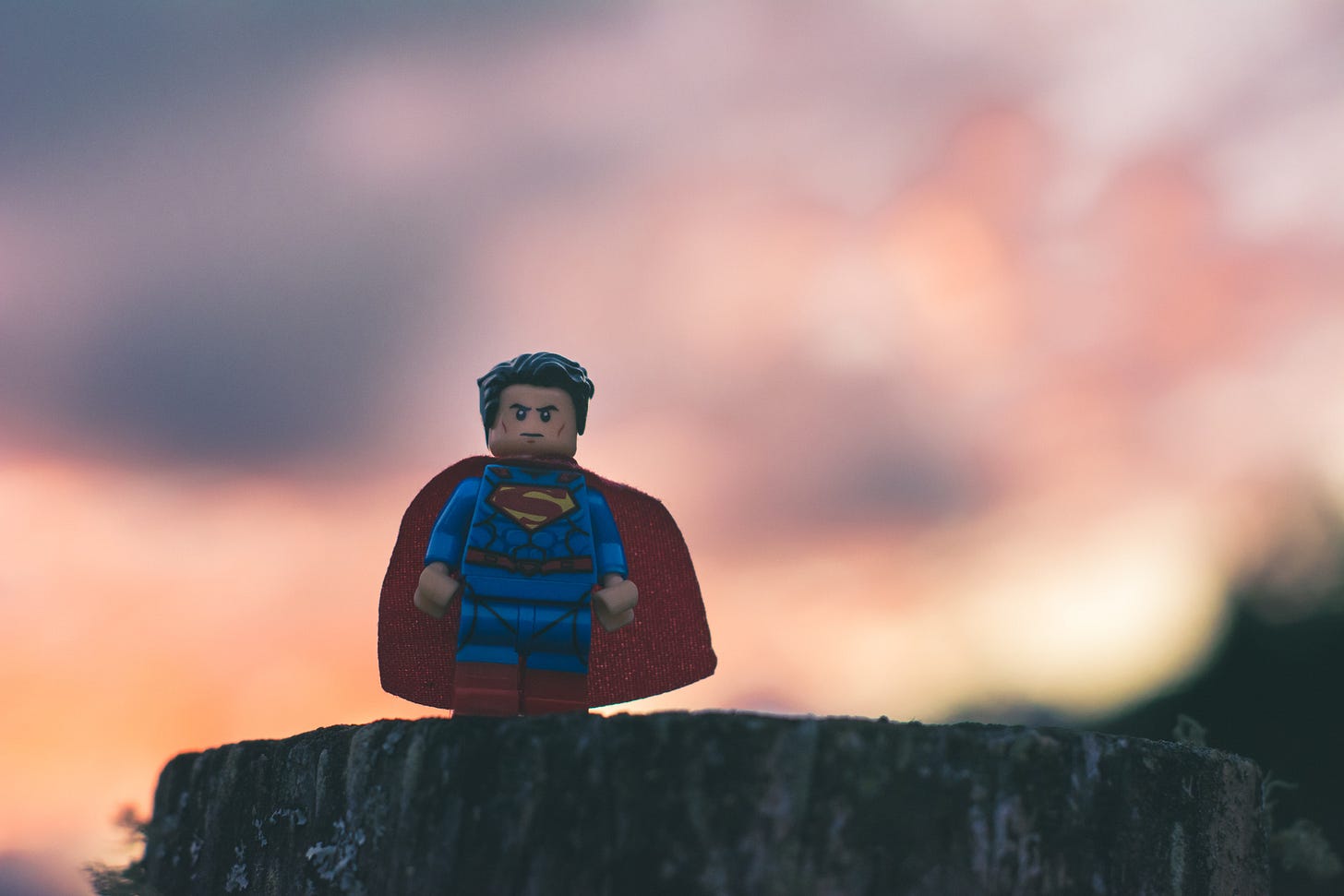In the Ashes of Epstein's Empire, It’s Time To Acknowledge the Truth: We Need Better Heroes
The release of Epstein’s remaining list of acquaintances has sent a predictable series of tremors through the glassy-eyed ranks of celebrities. For me, the cherry on the whole diaper-smelling cake wasn’t just the presence of well-established slimeballs, but the added bonus of academic, philanthropic, and monarchic slimeballs as well. While it may be too early to map out an airtight web of clientele, there’s certainly enough evidence to confirm that, yes, the celebrity circuit still smells like a bag of room-temperature cuttlefish.
There was, of course, expected backlash from the selectively dispassionate media. Philip Elliott, writing for the Times, was quick to point out that, “This is the problem when guilt-by-association becomes the M.O. of the masses . . . As a shortcut to declarative judgments, it’s generally garbage.” The Washington Post roundly declared “Trump allies” as the ones primarily obsessed with Epstein’s documents.
Should we be surprised? When are we, the drooling plebs, ever permitted to critique the antics of the rich and famous? We must take it by faith that Epstein’s entire circle of associates navigated their relationships with him with their eyes closed. That if they knew him at all, it was only because they’d shared a round of mimosas with him that one time at the APL. Where have we heard this calibre of hedging before? Oh yes, when Monteverde’s Sound of Freedom mustered the ranks of the pearl-clutchers league to sound the alarm over “disinformation.” Then there was that time it was revealed that Harvey Weinstein’s colleagues apparently suffered from decades of episodic amnesia while he groped his way through Hollywood.
While it’s true that guilt-by-association, as a judicial tool, is unfair, patterns aren't invalid simply because they're fallible. How many times does that same dude have to show up at the meth-cooker's house until we're allowed to suspect he's not just checking the gas meter. Such suspicions aren’t just a “snowball into absurdity.” In Epstein’s case, the real absurdity begins to manifest as the same celebrity-types keep showing up in the same compromised situations and yet continue to be revered as paragons of wisdom and virtue. Attempts at shedding light into their mushroomy corridors have repeatedly been met with dismissals, leading more than a few to wonder what exactly isn't there to see.
The Heroes We Need
Perhaps part of the reluctance to condemn such patently corrupt hierarchy stems not so much from a passion for due diligence as a refusal to believe that certain personalities, especially those within the inner ring of intelligentsia, are susceptible to corruption. How could progenitors of The Science™ be tempted by the kind of base pleasures Epstein was hawking?
And yet such corruption, especially in light of recent revelations among Ivy-League elites, shouldn’t surprise us. British historian and author Paul Johnson wrote a book called Intellectuals, in which he highlights key figures such as Rousseau, Marx, Ibsen, Tolstoy, Hemingway, Sartre, Orwell, Baldwin, and Chomsky, and ultimately concludes their combined moral volume wouldn’t fill a gym sock.
How far Hawking, Dersowitch, or anyone else on Epstein’s list participated in the Little St. James’ pleasure buffet has yet to be fully revealed, though early evidence suggests it may have been further than the tiki bar. The question remains — will further revelations change anything? How much elite corruption must be exposed before the masses stop revering them? As it stands, millions continue to remain transfixed whenever celebrities bring their sparkling intellect to bear on complex political situations. We feel a tickle of delight at rumours of them mingling with the commoners or tossing some pocket change to yet another inscrutable cause. We ask excitedly among ourselves — have the gods come down to us in human form?
Perhaps the real problem here is that we, like the Greeks of old, prefer our heroes underdone. They don’t make us feel as bad as the exemplary ones. From such a smug vantage point, we can even survey Epstein’s list and congratulate ourselves for not being on it, while conveniently forgetting that few of us will ever be exposed to such temptations.
Perhaps it’s also time we had a frank discussion about the nature of innocence. Does the totality of guilt rest only and ever on the individual directly responsible for the crime? If someone knew that a family member was being abused and chose to look the other way, could we reasonably declare such a person innocent? Is not the act of deliberately turning a blind eye to evil, when it is in one’s power to act, to be complicit in it?
We are, apparently, not allowed to ask such questions. Which might explain why no one ever answers them.
In conclusion, maybe what we really need are better heroes. Ones that are known for their honesty rather than their playboy escapades. Ones that are known for their moral courage rather than their incessant pandering. Ones that are known for their sacrifices rather than empty philanthropy. Perhaps it’s time to deface the cult of personality and raise in its stead a climate of integrity. Perhaps it’s time to stop excusing the monsters and start protecting the victims instead. Perhaps it’s time we looked to the true Hero Himself, “who in every respect has been tempted as we are, yet without sin.”
If the ditch on the one side of the road is guilt-by-association, the ditch on the other side is a series of double-standards for those who can afford them.
If push came to shove — I know which one I’d rather fall into.



